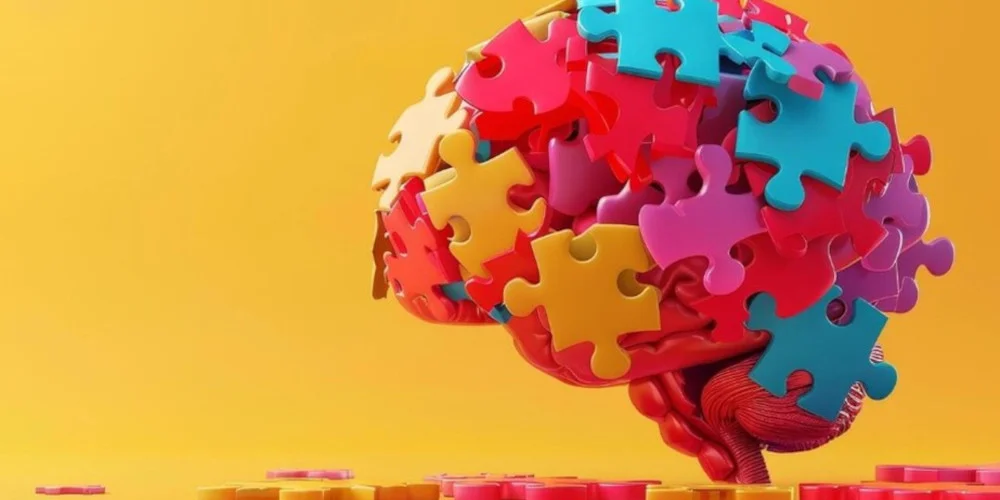There’s a kind of emptiness that modern people carry, a restlessness that never really leaves. You wake up, reach for your phone, scroll through noise, chase meaning through caffeine, through screens, through work, through something that feels almost alive. And yet, by nightfall, the quiet creeps back in. You’re stimulated, but not satisfied. Wired, but hollow.
This isn’t coincidence. It’s chemistry. We’re living in a global dopamine crash, a culture hooked on instant hits and constant input. And whether it’s alcohol, caffeine, sugar, porn, gambling, or just endless scrolling, the result is the same, we’ve numbed our capacity for real pleasure. We’ve burned out the brain’s reward system, and now everything feels flat.
Modern life is one long comedown.
The Currency of Feeling Good
Dopamine is often called the “pleasure chemical,” but that’s not quite right. It’s not what makes you feel good, it’s what makes you want to feel good. It’s motivation, drive, pursuit. Every time you anticipate something rewarding, a text, a sale, a like, a sip, dopamine spikes. The problem isn’t dopamine itself. It’s that the world has turned it into currency.
Everything we do is now designed to trigger it. Social media notifications, flashing slot reels, junk food, shopping apps, all perfectly engineered to exploit the same pathways that drugs do. The algorithm doesn’t care what you enjoy, only that you keep clicking. Your brain becomes a slot machine, and every swipe is a spin.
In short, we’re not chasing pleasure. We’re chasing stimulation. And stimulation isn’t satisfaction. It’s just noise that keeps us from feeling the silence underneath.
The New Withdrawal
Addiction was once defined by physical withdrawal, tremors, sweats, pain. But today’s withdrawal is quieter. It’s the inability to sit still. It’s the twitch of checking your phone after thirty seconds of silence. It’s the sense of dread that arrives when nothing is happening.
We live in a constant loop of seeking small hits of dopamine and avoiding anything that doesn’t provide them. We scroll through social media instead of sitting with sadness. We binge-watch shows to drown out boredom. We chase validation instead of intimacy.
The cost? Our baseline pleasure drops. What once made us feel alive, conversation, nature, music, intimacy, starts to feel dull compared to the endless high of stimulation. That’s the dopamine deficit. It’s not depression. It’s depletion.
The Addict in All of Us
You don’t have to be an alcoholic or a gambler to understand addiction. Every time you compulsively reach for your phone, you’re acting out the same neurological pattern, craving, hit, relief, repeat. Every time you tell yourself “just one more episode,” “just one more scroll,” “just one more drink,” you’re participating in a universal ritual, the modern craving loop.
The only difference between substances and screens is shame. We moralise one and monetise the other. But biologically, the same circuits fire. We’re all addicts now, just to different doses.
The Reward System Hijacked
Here’s what’s really happening, your brain has a reward system built for survival. Dopamine pushes you toward things that keep you alive, food, connection, accomplishment. But the modern world has hacked that system. Instead of hunting for food, we order it with a swipe. Instead of seeking community, we chase online approval. Instead of delayed gratification, we get the instant kind.
The brain was never meant to handle this much stimulation. It adapts by reducing dopamine receptors, meaning it takes more and more to feel less and less. The result is a flat, restless existence, one that feels empty no matter how much you consume.
That’s why people say, “I have everything, but I still feel nothing.” They’re not broken. They’re depleted.
The Pleasure-Pain See-Saw
Every hit of pleasure comes with a cost, a dip in dopamine that creates discomfort. The more you chase highs, the deeper the dips become. You drink for relief, but the next day you’re more anxious. You scroll for distraction, but afterwards you feel emptier. You buy something for joy, but it fades before it arrives.
This is the see-saw of pleasure and pain. The more we tip it toward instant gratification, the more our brains compensate by producing pain signals to restore balance. Over time, the balance point shifts, and you’re left in a permanent state of low motivation, low pleasure, and high craving.
That’s why recovery, from anything, often starts with boredom. You’re letting the brain reset, letting the receptors heal. But in a world addicted to stimulation, boredom feels unbearable.
The Dopamine Economy
There’s an industry for every craving. A company for every urge. Tech giants, pharmaceutical brands, alcohol producers, they all understand dopamine better than most neuroscientists. Their success depends on your compulsion. The more addicted you are, the longer you stay engaged.
The economy thrives on distraction. It rewards impulsivity. It sells us relief for the problems it created. Feeling burnt out? Here’s caffeine. Feeling anxious? Here’s wine. Feeling empty? Here’s shopping. Feeling lonely? Here’s a screen that will simulate connection just long enough to forget you’re still alone.
It’s not a conspiracy, it’s capitalism. And the collateral damage is human attention, human presence, and human joy.
Life in the Red Zone
Many people today live in what neurologists call the “red zone”, a state of chronic overstimulation. It’s when the brain’s dopamine system is so overloaded that even normal pleasure feels muted. Food tastes dull. Conversations drag. Work feels meaningless. You’re not lazy, you’re chemically drained.
In this state, the only things that cut through the fog are high-intensity experiences, risk, conflict, novelty, sex, chaos. That’s why people in recovery sometimes unconsciously create drama. The brain, starved for dopamine, mistakes crisis for aliveness.
In a world addicted to excitement, peace can feel like depression. But peace isn’t emptiness, it’s absence of withdrawal. You just haven’t learned to recognise it yet.
Resetting the System
The good news is that the dopamine system is repairable. But it doesn’t heal through intensity, it heals through balance. The solution isn’t a detox retreat or a new app. It’s discomfort. It’s stillness. It’s learning to sit with the absence of stimulation long enough for your brain to remember what “normal” feels like.
This is what neuroscientists call a dopamine fast, not a diet, but a recalibration. You reduce all the artificial hits (screens, sugar, scrolling) and let the brain reset. At first, it feels unbearable. Then, slowly, your senses return. Food tastes better. Music moves you. Connection feels real again.
It’s not that life becomes more exciting, it becomes meaningful again.
The Emotional Side of Dopamine
Behind every dopamine habit is an emotional truth, we’re avoiding something. Boredom. Loneliness. Grief. The need for constant stimulation is often just a refusal to feel. Because feeling, real, raw, unfiltered emotion, doesn’t give instant relief. It gives depth.
Recovery from dopamine addiction is really recovery from emotional avoidance. It’s learning that silence isn’t emptiness, it’s the space where your real life starts to breathe again.
The first few days without your chosen stimulant, whether it’s caffeine, sugar, or your phone, feel like withdrawal. That’s not weakness. That’s grief. You’re mourning the version of yourself that needed constant noise to survive.
The Cost of Constant Reward
A brain that’s always rewarded forgets how to rest. It forgets how to anticipate. And anticipation, that delicious waiting, is half the joy of living. When everything’s available instantly, nothing feels sacred.
That’s why we’ve lost our sense of awe. Nature feels “slow.” Reading feels “hard.” Intimacy feels “boring.” We’ve trained our minds to need constant novelty, and now we can’t tolerate the simplicity of the real.
The price of overstimulation is spiritual numbness. You lose the ability to be moved by the ordinary, a child’s laugh, a meal shared, a sunset unnoticed because you were watching another screen.
Healing the Reward System
Healing starts small. You don’t need to disappear into the mountains or delete every app. You need to retrain your brain to find pleasure in presence again. Start by noticing the tiny hits, the smell of rain, the warmth of sunlight, the quiet of early morning. These aren’t dopamine spikes, they’re serotonin waves, slow, steady, real.
Move your body without tracking it. Eat without multitasking. Listen to someone without checking your phone. These acts sound trivial, but they’re neurological repair. You’re teaching your brain that joy doesn’t require a hit, it requires attention.
True pleasure has weight. It lingers. It doesn’t demand the next one immediately.
From Stimulation to Satisfaction
The recovery from the dopamine deficit isn’t about quitting technology or pleasure. It’s about rediscovering depth in a shallow world. It’s learning that the best moments don’t light up your phone, they light up your soul.
When you stop chasing dopamine, you rediscover wonder. You start laughing without reason. You start feeling without fear. You start living without checking if anyone saw it.
And slowly, the world stops feeling like withdrawal, and starts feeling like home again.















